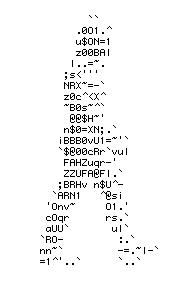People Journalism für Hurrican "Isabel"
Steve Outing beschreibt ein gutes Beispiel von "People Journalism" im Zusammenhang mit dem Hurrikan "Isabel":
Some significant developments in the new media world have been swelling to change journalism recently. One of the most notable is the ubiquity of digital cameras, and the growing usage of cell phones with built-in cameras.
For this major news story, a growing number of East Coast citizens are snapping photos of hurricane damage that they see -- at their homes, during their travels around their communities -- and then sending the images, plus short text explanations, to news outlets. That's not entirely new behavior, of course, but the growth of digital cameras and photo phones is increasing the activity.
It's simple enough to snap a picture with a digital camera, download it to a PC, then e-mail it off to a news outlet. It's even simpler -- and much, much faster -- to snap a digital image with a photo phone, click a couple buttons, and immediately send off the photo of, say, a tree that's crushed a house.
News organizations are starting to get wise to this growing army of citizen camera- and phone-toting photojournalists, so Hurricane Isabel was a prime news story to put the public photos notion to work and request that the public send in photos and first-person text accounts of their hurricane experiences. Certainly not all news organizations in the storm zone are letting the public be part of the reporting process, but a growing number are.
Hier weiterlesen bei Poynter.org: Hurricane Victims, a.k.a. Amateur Journalists.
Some significant developments in the new media world have been swelling to change journalism recently. One of the most notable is the ubiquity of digital cameras, and the growing usage of cell phones with built-in cameras.
For this major news story, a growing number of East Coast citizens are snapping photos of hurricane damage that they see -- at their homes, during their travels around their communities -- and then sending the images, plus short text explanations, to news outlets. That's not entirely new behavior, of course, but the growth of digital cameras and photo phones is increasing the activity.
It's simple enough to snap a picture with a digital camera, download it to a PC, then e-mail it off to a news outlet. It's even simpler -- and much, much faster -- to snap a digital image with a photo phone, click a couple buttons, and immediately send off the photo of, say, a tree that's crushed a house.
News organizations are starting to get wise to this growing army of citizen camera- and phone-toting photojournalists, so Hurricane Isabel was a prime news story to put the public photos notion to work and request that the public send in photos and first-person text accounts of their hurricane experiences. Certainly not all news organizations in the storm zone are letting the public be part of the reporting process, but a growing number are.
Hier weiterlesen bei Poynter.org: Hurricane Victims, a.k.a. Amateur Journalists.
Cyberwriter - 22. Sep, 15:09 - online Journalism
0 Kommentare - Kommentar verfassen - 0 Trackbacks




















